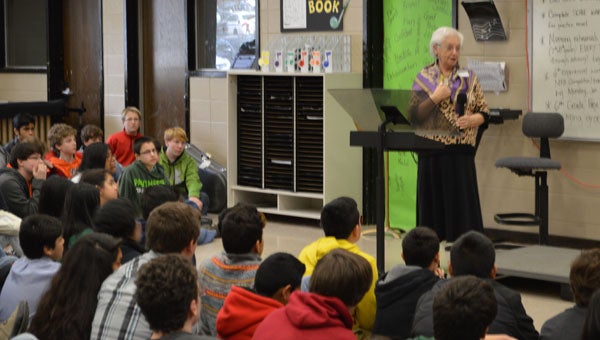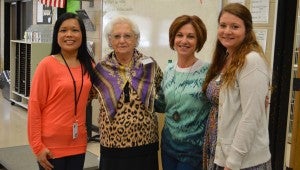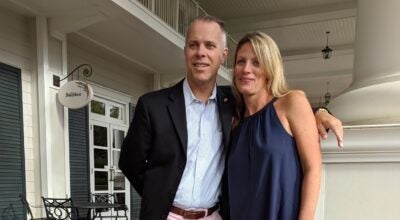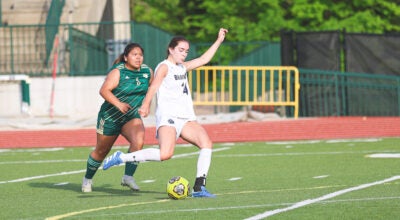Holocaust survivor visits RMS
Published 12:05 pm Wednesday, January 27, 2016

Holocaust survivor, Riva Hirsch, recounts her experiences as a 7-year-old Jewish girl in 1943. (Reporter photo/Jessa Pease)
By JESSA PEASE / Staff Writer
PELHAM— Riva Hirsch is a survivor of the holocaust. At 82 years of age, Hirsch can still remember what happened to her when she was only 7 years old in 1943.
On Jan. 27, Riverchase Middle School teacher Hannah Rogers arranged for Hirsch to visit the school to recount her journey for the eighth grade students.
After reading books related to the holocaust, such as “The Book Thief,” “The Diary of Anne Frank” and “Maus,” the students had the chance listen to Hirsch’s story.

English and language arts teachers at RMS thank Riva Hirsch for sharing her experiences during the holocaust.
“I cannot remember what I had for breakfast yesterday, but I cannot forget what I went through,” Hirsch told the students.
The students were silent as Hirsch wove the tale of her family’s attempts to find safety. Unfortunately, they were apprehended in a forest. Hirsch explained that she and her two brothers were all separated, and her parents were both beaten.
The siblings were lined up on separate walls to wait for a train.
“It was not a normal train,” she told the students. “It was filled with all kinds of horses and cows.”
The train was also filled with dead bodies, Hirsch explained, but she was forced into it anyway. She illustrated the events leading up to her eventual escape: Being given a number and yellow star, watching other Jews being drowned in a “ferry” and more.
“God wanted me to be safe to be around all you, to tell my story,” she said.
Finally, the sick, broken and weak Hirsch, was taken to a convent on a wagon, where nuns hid her in a bunker and provided her with minimal amounts of food. Hirsch said the convent saved several girls, but they were all kept in separate bunkers.
She stayed there from 1943 until 1945 when she was liberated. Eventually, she was reunited with her father, but her brothers and mother did not survive.
The students asked several questions of Hirsch once she had finished her story. Many asked how she kept hope through such devastation, and other inquired about her family members.
When the presentation had finished, Hirsch stressed one message to the students, explaining that they represent the future.
“What I am telling you today is the truth,” she said. “We have to make sure something like this never happens again. There is so much, even today, saying the holocaust never happened, but it did. I wish I could say that it never happened, but it did.”









